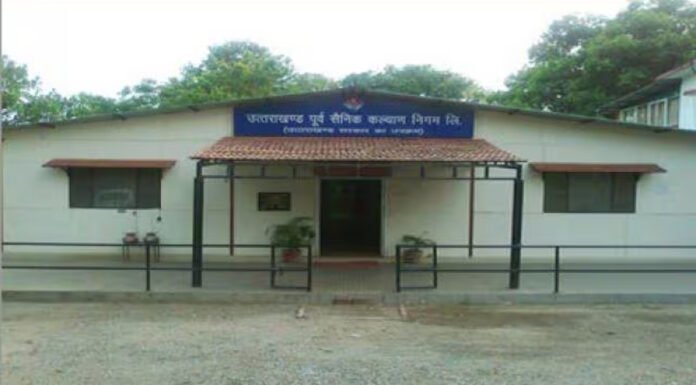DEHRADUN: The state government has approved a significant policy decision granting minimum pay-scale benefits and dearness allowance to personnel working through the Uttarakhand Purv Sainik Kalyan Nigam Limited (UPNL). The move follows the directions of Chief Minister Pushkar Singh Dhami, marking one of the most substantial interventions for contractual UPNL workers engaged across various state departments.
Our correspondent reports that the decision was finalised after a detailed review at the government level and in compliance with an earlier order of the Uttarakhand High Court in Nainital. The matter relates to Writ Petition (PIL) No. 116 of 2018, decided on November 12, 2018. UPNL representatives had recently met the Chief Minister seeking parity in wages and long-pending service protections, after which the state undertook a comprehensive examination.
Key provisions announced
In a circular issued by Deependra Chaudhary, Secretary, Sainik Welfare Department, the government clearly outlined that:
- UPNL personnel working in government departments or institutions who have completed 12 years or more of continuous service will now be paid the minimum of the pay-scale along with dearness allowance, based on the principle of equal work and equal pay.
- Other UPNL personnel who have completed continuous service in a phased manner will also be granted the minimum pay-scale and dearness allowance as early as possible, in line with the same principle.
The government further stated that formal implementation orders will be issued shortly so that the benefits reach personnel within a clear timeline.
Chief Minister Dhami emphasises commitment
Chief Minister Pushkar Singh Dhami said the government is committed to protecting the welfare and rights of UPNL workers who provide essential services in multiple state departments.
“The state government stands firmly with UPNL workers. Their contribution is critical, and we have ensured that their long-pending concerns are addressed with fairness and urgency,” he said. He added that the new decision “marks a major step towards ensuring dignity, justice and parity for personnel who have served the state with dedication for many years.”
Our correspondent adds that thousands of contractual employees in sectors such as health, administrative support, technical operations, security and logistics are expected to benefit from the order.
Background and legal context
UPNL, originally created to provide employment opportunities to ex-servicemen, gradually expanded to support a large civilian workforce. Over the years, demands for pay parity, regularisation pathways and social-security coverage grew stronger, leading to litigation and public campaigns.
The 2018 High Court order had directed the state to examine service-conditions and rectify discrepancies related to remuneration. Officials said that after careful assessment, the government concluded that minimum pay-scale benefits were justified for personnel who have completed long periods of continuous service.
A senior official in the Sainik Welfare Department said: “This decision acknowledges the commitment of UPNL workers. They have been contributing for more than a decade in many cases, and the minimum pay-scale was a long-standing demand.”
Worker response
UPNL representatives welcomed the announcement, calling it a positive step toward ensuring economic stability for thousands of employees.
One senior representative, speaking after the meeting with the Chief Minister, said: “This is the first time such a clear and structured assurance has been granted. Workers who have completed more than 12 years will finally receive what they deserve. We hope the remaining categories will also see prompt implementation.”
Several employees expressed relief that the state has formally acknowledged their service. An employee working in a district health office said, “Many of us have been working for years without financial security. This decision brings hope and respect.”
Implementation and next steps
Officials noted that departments will now identify eligible personnel and compile service records to issue revised pay orders. District-level committees may be formed to speed up the verification process, ensuring timely disbursal of revised wages.
Financial departments are also expected to assess the additional fiscal implications. However, a senior finance official said the government views the move as “a necessary social-justice reform rather than a financial burden”.
Broader administrative significance
Analysts point out that the decision may set a benchmark for other categories of contractual workers in the state. It also aligns with the broader push for improving working conditions, transparency in outsourcing and compliance with labour norms.
With the state preparing for various administrative reforms and fiscal planning for the coming year, the decision is seen as a major welfare move that strengthens trust between the government and outsourced personnel.
As the government completes the formal notification process, the focus remains on ensuring smooth and timely implementation across all departments.

























